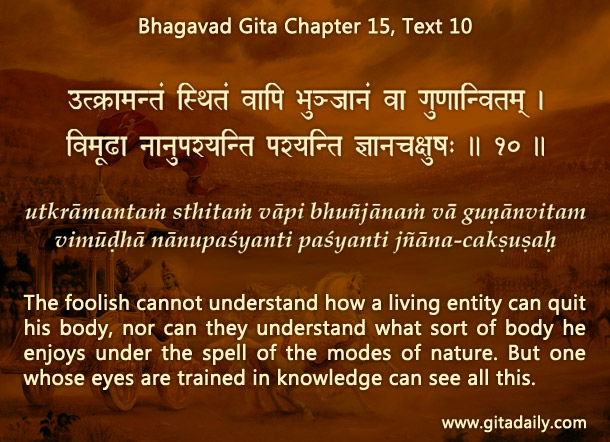Some people assert, “Seeing is believing.” Their intent in making this assertion may be good – they don’t want to unintelligently, gullibly believe anything and everything.
Despite their good intention, their assertion is problematic. Why? Because “seeing is believing,” if applied literally, stunts human knowledge. We grow in knowledge not merely by seeing and believing, but by thinking about what we see and integrating our observations into coherent inferences.
Consider how science progresses. Not merely by seeing and believing, but by using specific observations as starting points to arrive at universal principles. Newton didn’t just believe what he saw when an apple fell in front of him. He thought about what he saw and thereby inferred the principle of gravity. Suppose, instead of Newton, a monkey had seen the apple fall. It wouldn’t have thought about what had made the apple fall – it would have just believed that the apple had fallen for it to eat and gobbled it.
Just as scientific knowledge grows by making inferences from observations, so does spiritual knowledge. When we see people, we may believe what we see and presume that they are just their physical bodies. But if we think about what we see, we will realize that they have consciousness, whereas the physical body is made of insentient matter. Where does consciousness come from? From a nonmaterial, invisible source: the soul (Bhagavad-gita 15.10).
If we restrict our vision only to the visible, we won’t gain any deep knowledge. “Seeing is believing” will sentence us to an ignorant, animalistic existence. But if we see and think about what we see, and then decide what to believe, then we will grow in all-round knowledge, in spiritual insight, in a life of meaning and fulfillment.
Think it over:
- How would “seeing is believing” stunt scientific progress?
- How does spiritual knowledge grow by the same method as scientific knowledge?
- How can going beyond “seeing is believing” help us grow?
***
15.10 The foolish cannot understand how a living entity can quit his body, nor can they understand what sort of body he enjoys under the spell of the modes of nature. But one whose eyes are trained in knowledge can see all this.

To know more about this verse, please click on the image
Explanation of article:
Podcast:

Leave A Comment